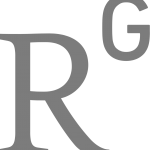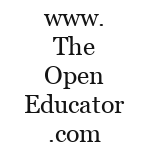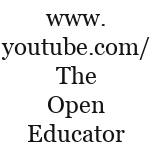What Is It?
The goal of my teaching philosophy is to develop the higher-order skills: critical thinking, meta-cognition, reasoning, analytical, effective communication, leadership and team management. My teaching and learning methods and techniques are designed to analyze, evaluate and synthesize a complex real-world problem. Students will practice and learn the subject matters through innovative and creative sophisticated problems around the world today. Problems being assigned and practiced for my students must be optimally challenging to avoid overloading or underloading. To achieve the goal of my teaching philosophy, I believe that knowing the abilities and inabilities of my students is the key to the successful teaching and learning. I constantly monitor my students through frequent assessments to adjust the speed of the class before it is too late. Approximately, fifteen assessment points for a 42-contact-hours (3-credit hours) course also provide me an opportunity for the consistent improvement of my teaching and learning methods. As I would like to challenge my students, so being challenged by my students is even more rewarding and satisfying as an educator!
Who AM I?
I believe in the method of teaching by Socrates “I can’t teach anybody anything; I can only make them think.” I believe that it is their game where I can only perform as a coach guiding them to find their own paths to walk without me. The challenge of developing an effective teaching method is to create an environment where students can share and discuss their ideas, thus learning from their peers, systems and environments. To create such an environment, I would like to introduce “Optimum-Challenge-Based-Coaching”. I prefer “coaching” over “teaching” because students will have an opportunity to practice the topics in my courses (Seymour, 2012). My responsibility as a coach is to provide students with correct challenges for a particular topic. One of the principles of cognitive psychology reveals that “humans are naturally curious, but they are not good thinkers” (Willingham, 2009). One of the key objectives of my coaching is to initiate the thinking process. For example, in “An Introduction to Ergonomics Course,” I would like to challenge my students to design the worst ergonomic computer-workstation instead of the best one. Students will have to go through very similar materials to accomplish this challenge, but in doing so they will teach themselves what makes a good work-station so as not to include those elements in their design. More examples of innovative and creative real-world practical problems could be found at the following two sites designed and developed by me.
Who Are My Students?
Providing examples connected to their academic, professional and personal background is the key to engage students actively because humans learn new things from known contexts (Willingham, 2009). The creative and innovative examples are already there. Utilizing my multidisciplinary academic background, I assign challenges using students existing experiences as a basis to build upon for learning new methods/principles. During the problem-solving process, I help them minimize mistakes while developing better solutions to that provided prior by others, thereby encouraging competition among students to find the best possible solution. This would help students evolve their higher-order thinking to apply the newly learned methods in solving a particular problem in an effective and efficient manner.
Is Learning Happening?
The assessment of a student’s ability/skill in finding solutions to a given problem is important in making coaching an effective method to ensure that learning is actually in progress (Angelo & Cross,1993)! Most courses could be designed into two parts: (1) learning the method/ theory and (2) practical application of that method/ theory. For the first part, students can be evaluated by using traditional classroom-based tests by using innovative and creative scenario-based questions (McKeachie & Svinicki, 2013). To evaluate their practical approach, a creative project would be assigned to each student to work on an individual or group basis. My approach would be to evaluate a student based on the amount of time they spend on the project as well by assessment of their methodology/approach towards solving the problem but not necessarily finding the solution. I believe that these evaluation approaches will involve both low-stake (informal) and high-stake (formal) writings, which eventually teach the students to apply the learned knowledge in practice.
What’s In It For Me?
In summary, I believe that “ Optimum-Challenge-Based-Coaching” is the key to my teaching philosophy where students will be coached for higher order learning such as critical thinking and problem-solving skills to develop and grow with their full potentials. This would allow students to engage in an active learning by practicing diverged and multifaceted activities and assignments. Teaching is one of the most effective ways to learn about a topic to its core. This belief and my quest for knowledge have led me to choose teaching and learning as my profession. The resources for me as a teacher and a learner are my students, mentees, mentors, colleagues, the real-world complex problems all around us, and the new teaching and learning techniques and methods being developed by researchers to raise the level of education.
Theory of Sustained Optimal Challenge in Teaching and Learning
Teaching Philosophy of Shaheen Ahmed Presented at MSU 2015
Reference
Angelo, T. A., & Cross, K. P. (1993). Classroom assessment techniques: A handbook for college teachers.
McKeachie, W., & Svinicki, M. (2013). McKeachie’s teaching tips: Cengage Learning.
Seymour, M. (2012). Teaching Methods, Techniques and Philosophy. Mississippi State: Mississippi State University.
Willingham, D. T. (2009). Why don’t students like school? : a cognitive scientist answers questions about how the mind works and what it means for the classroom. San Francisco, CA: Jossey-Bass.
A few of my favorite teaching quotes
“Know the abilities and inabilities of students to challenge them with the right problems”
–Shaheen Ahmed
“I cannot teach anybody anything, I can only make them think.”
–Socrates (470BC-399BC)
“Thought flows in terms of stories – stories about events, stories about people, and stories about intentions and achievements. The best teachers are the best story tellers. We learn in the form of stories.”
–Frank Smith
“Every truth has four corners: as a teacher I give you one corner, and it is for you to find the other three.”
–Confucius (551BC-479BC)
“A teacher is one who makes himself progressively unnecessary.”
–Thomas Carruthers (1820 –1875)
“Tell me and I forget. Teach me and I remember. Involve me and I learn.”
— Benjamin Franklin (1706-1790)
“You cannot teach a man anything. You can only help him discover it within himself.”
–Galileo Galilei (1564-1642)
“I have never let my schooling interfere with my education.”
–Mark Twain (1835-1910)
“Not perfection as a final goal, but the ever-enduring process of perfecting, maturing, refining is the aim of living.”
–John Dewey (1859-1952)
“While we try to teach our children all about life, our children teach us what life is all about.”
–Angela Schwindt
“Teaching is the highest form of understanding.”
–Aristotle (384 BC – 322 BC)
“A little learning is a dangerous thing; Drink deep, or taste not the Pierian spring.”
–Alexander Pope (1688-1744)
“Education is what remains after one has forgotten what one has learned in school.”
–Albert Einstein (1879-1955)
“Excellence is never an accident. It is always the result of high intention, sincere effort, and intelligent execution; it represents the wise choice of many alternatives – choice, not chance, determines your destiny.”
–Aristotle (384 BC – 322 BC)








